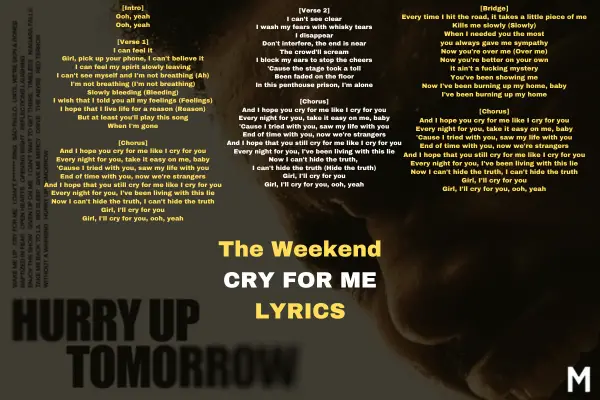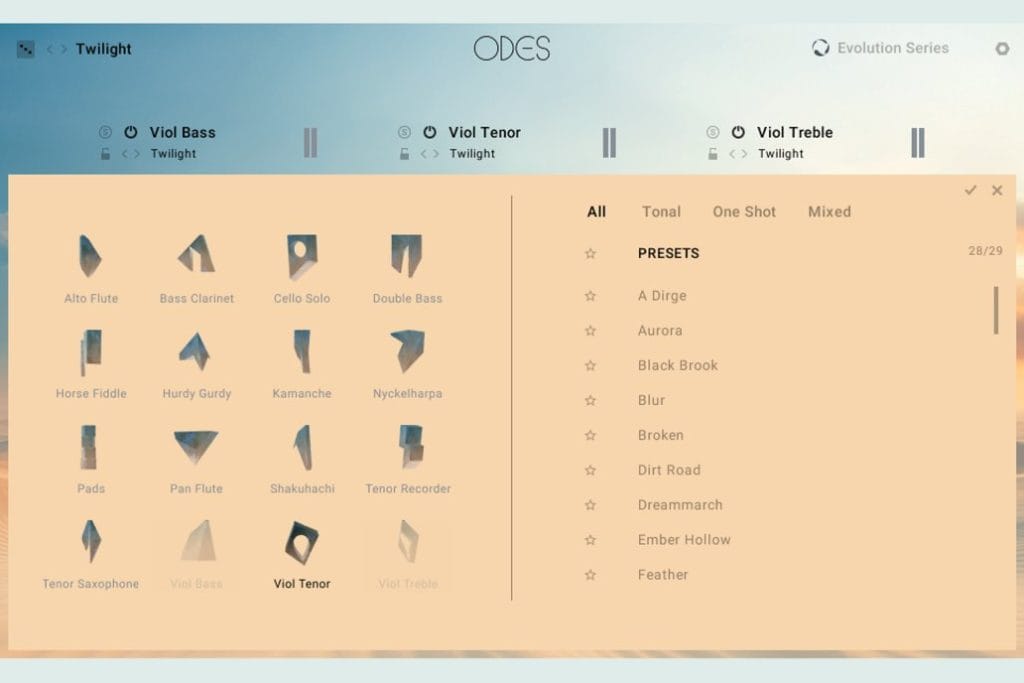
The Weeknd Cry For Me Lyrics & Meaning: Love, Loss & the Weight of Fame
Table of Contents
Image Courtesy Of The Weeknd XO Music ULC, marketed by Republic Records
Some songs have a natural lasting quality—not just because they sound good in your headphones or speakers, but because they often say something that hits a little deeper. When it comes to The Weeknd’s Cry For Me, it has that weight. Cry For Me follows in the massive footsteps of After Hours and Dawn FM, but with a rawer, more vulnerable edge.
The song has already racked up millions of streams, and fans everywhere are doing what they do best—dissecting every lyric, trying to figure out who it’s about and what it all means in terms of The Weeknd’s life right now.
Instead of just breaking down the obvious themes—regret, isolation, the high cost of fame—I want to zoom out to see what happens when we put this song in conversation with literary history, modern fiction and film, and other great songs. By doing this, we can uncover deeper meanings and connections that might not be immediately apparent.
Without further ado – let’s dive in!
The Weeknd Cry For Me Lyrics
The Weeknd Cry For Me Meaning
“I wish that I told you all my feelings…”
Regret is one of the hardest things to live with. It lingers, no matter how deep you can bury it inside, creeping in when you least expect it. The song opens with this gut punch—wishing you had said what you needed to say before it was too late. That feeling is in so many heartbreak songs, but one that really hits the same way is Frank Ocean’s “Ivy”. The lyric “I thought that I was dreamin’ when you said you love me” is almost an echo of this one.
Poetry captures this, too. Pablo Neruda, in Tonight I Can Write, says, “Love is so short, forgetting is so long.” That’s exactly what’s happening here. The moment is gone, the chance is missed, but the feelings won’t leave. As anyone can attest to who has experienced regret – regret isn’t just about the past. It also has the power toifollow you into the future, making you wonder what could have been.
It’s a theme we see in movies like Eternal Sunshine of the Spotless Mind, where people erase their memories to escape heartbreak. Yet the love, the regret, the things left unsaid—it all finds a way back. Just like in this song.
“The crowd’ll scream, I block my ears to stop the cheers…”
As countless artists have told us before, fame isn’t always what it seems. In this line, the narrator is surrounded by people, by noise, by success—but it all feels empty. This is the exact feeling that All That Jazz captured so well. Bob Fosse’s lead character, Joe Gideon, is a performer who gives everything to his craft, but deep down, he’s miserable. Even when he’s dying, he forces a smile and says, “It’s showtime, folks.”
Sylvia Plath wrote about this kind of isolation, too. In The Bell Jar, she describes feeling trapped in her own success. “I thought, ‘This is what it is to be happy.’ But then again, I thought, ‘I am not happy.’” That’s the same energy in this lyric. The world is cheering, but the narrator is somewhere else, drowning in their own head.
It’s a powerful moment because it flips the usual story. Most people, especially those who have never experienced it, may think fame and success will fill some sort of emptiness inside them. This song, like All That Jazz and The Bell Jar, shows that sometimes, it only makes the silence louder.
“Now I’ve been burning up my home…”
Burning up my home is about losing the one place that was supposed to feel safe. As you can guess, home is supposed to be your foundation, the place where you can escape from the noise of the world. But in this song, it’s gone. Whether he set the fire himself (metaphorically speaking) or just let everything fall apart, the meaning is clear: he has no refuge anymore.
It’s the same idea in The Great Gatsby. Gatsby throws these massive parties, drowns himself in wealth, all to forget Daisy—but it never works. He’s still standing at the edge of the water, staring at the green light, hoping she’ll come back. This lyric has that same feeling.
Even in Pablo Neruda’s poetry, this theme shows up again. “My voice tried to find the wind to touch her hearing.” But she’s already gone. That’s the real tragedy of this song. The past is already out of reach. No matter how much you run, burn, or drink—it never really leaves.
Final Thoughts
Cry For Me taps into something universal we all deal with in life at some point—the ache of regret, the weight of isolation, and the realization that no amount of success or distraction can erase the past. The Weeknd has always blurred the lines between personal confession and theatrical storytelling, but this song feels especially raw.
That’s why Cry For Me resonates beyond just its lyrics or production. It echoes themes that have played out in literature, film, and music for decades—because these struggles aren’t new. Whether it’s Frank Ocean’s Ivy, Eternal Sunshine of the Spotless Mind, or even The Great Gatsby, the story remains the same: we love, we lose, and we live with what’s left behind. And sometimes, the only thing to do is sing about it.



